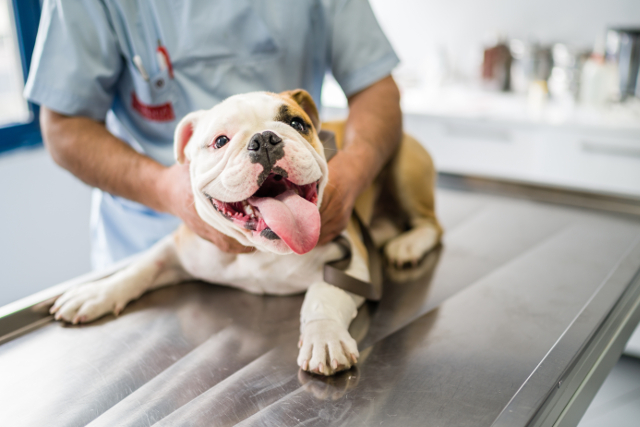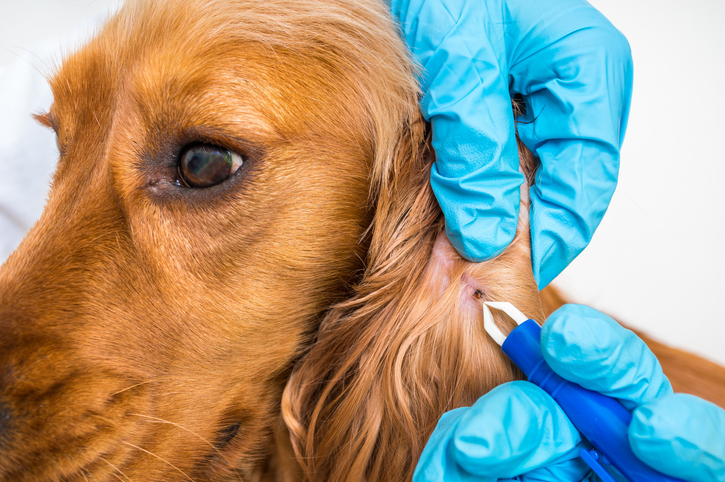If you’re a dog owner, you already know that this animal is capable of bringing untold joy and love into our lives. A dog’s loyalty is unmatched, and there’s nothing quite like coming home to an adorable creature that sees you as its whole world. Of course, being a dog owner also takes work and dedication. They need to be fed, washed, walked, and generally looked after in order to keep them healthy and happy.
One of the best things you can do for your furry friend as a dog owner is to ensure you’re keeping up-to-date with all necessary vet appointments. Why? Because a veterinarian is capable of screening your dog for a number of preventable health issues, and caring for them proactively before they become more serious problems.
Why take a preventative approach to dog health care?
For a long time, the health of our dogs was treated as more of an afterthought. Despite a shared history spanning millennia between humans and canines, only recently have we truly brought these beloved animals in as members of the family, and treated their well-being accordingly.
Whereas previously, dog health conditions were simply a fact of life that may have cut a pup’s time with us short, veterinary research has allowed us to treat the health of our dogs much as we would treat humans. That’s why preventative care is so important—it means that issues can be detected and treated before they become serious, (or even life-threatening) which means a longer, happier life for your dog and many more years of good memories for their owners.
As indispensable members of our families, it’s only fair that we do our very best for our dogs. Let’s go through a few common dog health problems, and how preventative treatment can nip them in the bud and keep your dog safe and healthy for years to come.
1. Obesity
Obesity is the most common health issue in our pet dogs. Approximately 60% of pet dogs are overweight or obese. Overweight dogs are predisposed to other serious health issues like arthritis, diabetes, and respiratory compromise.
Regular check ups with your vet will allow for routine assessment of your dog’s weight, and if the veterinary team detects any increases in your dog’s weight we can address this as quickly as possible. The team will discuss any specific dietary changes needed to get your pet back into shape and the regular weight checks needed to ensure we are seeing positive progress.
Weight loss can be challenging, and we are here to support your pet every step of the way!
2. Parasites and Tick-borne Illnesses
Tick-borne illnesses and parasites such as heartworm can have very serious health implications for your dog. Thankfully, here in BC these health issues are fairly rare; however, we have many pets that are rescued from other countries where these health issues are a major concern. If your pet has traveled overseas, your vet will recommend testing to ensure that your pet does not have heartworm, lyme disease, anaplasma, and other serious illnesses.
We can protect your pet from heartworm, fleas, and ticks through the proactive use of medications. All that’s needed is a chewable pill or a topical solution administered monthly. Your veterinarian will be able to give you a prescription based on your dog’s age, breed, and size, providing peace of mind for years to come.
3. Arthritis
Arthritis refers to inflammation and swelling of joints in key stress points of your dog’s body. The most common form of arthritis in dogs is osteoarthritis, which is typically seen in older dogs. Over time, this problem compounds and can lead to severe pain and lack of mobility. Although not strictly preventable, there are many things you can do to improve your dog’s odds of avoiding this painful and debilitating condition.
If your veterinarian suspects your dog is at risk of developing arthritis, they can make several recommendations on how best to improve the prognosis. Typically, the first step is weight loss, usually through a combined approach of adapted exercise and a specialized diet. Joint supplements will be recommended by your vet. Sometimes, anti-inflammatory prescriptions are also necessary in order to reduce your pet’s pain and keep them active.
4. Infectious Diseases
Visiting your vet clinic on a regular basis to keep your pet up to date on vaccines ensures that your pet is well protected from infectious diseases like parvovirus, distemper, and rabies. These diseases can be transmitted by other dogs and wildlife. Routine vaccination is our best preventative action against these deadly diseases. Annual vaccine appointments are also a great time to discuss any other preventative care your dog might require.
5. Dental Disease
Dental care is a little recognized, yet necessary part of caring for your dog. By the age of three, 80% of all dogs show signs of dental disease, which can lead to the more serious problems of heart, lung, and kidney disease.
Dental disease can be prevented and treated. Daily brushing of your dog’s teeth and offering daily dental chews are something you can do at home to help keep their teeth in good health. At your dog’s annual check up, your veterinarian will perform an oral health assessment and might recommend a dental procedure.
Dental procedures are done under general anesthesia for the comfort and safety of your pet and include ultrasonic cleaning, polishing, fluoride treatment, and dental x-rays. They are key to preventing and treating dental disease in dogs.
6. Cancer
Unfortunately, the vast majority of us have been impacted by cancer in one way or another. Hearing that a loved one has contracted this dangerous and unpredictable disease can be completely devastating, and the same is absolutely true for our dogs.
Although dogs can still develop cancer despite a healthy lifestyle, there is still hope. Veterinary research has allowed us to learn more about how and why cancer develops in dogs, and how best to prevent them moving forward. For instance, we’ve learned that certain breeds, such as boxers, terriers, and retrievers tend to run a higher risk of contracting cancer. (Source: ASPCA)
Although not all types of cancer can be prevented, there are a few ways to improve your pup’s odds of avoiding certain kinds altogether. Spaying or neutering your pet as soon as safely possible is one great way to reduce their chances of getting cancer, particularly testicular or breast cancer. Furthermore, regular vet visits give your animal expert a chance to thoroughly screen your dog for cancer, meaning that smaller growths can be treated and removed before they become life-threatening.
As you can see, there are several health problems that dogs run the risk of encountering throughout their life. Thankfully, there’s almost always something you and your veterinarian can do in order to be proactive and preemptive about their health.
Creative Commons Attribution: Permission is granted to repost this article in its entirety with credit to Hastings Veterinary Hospital and a clickable link back to this page.






